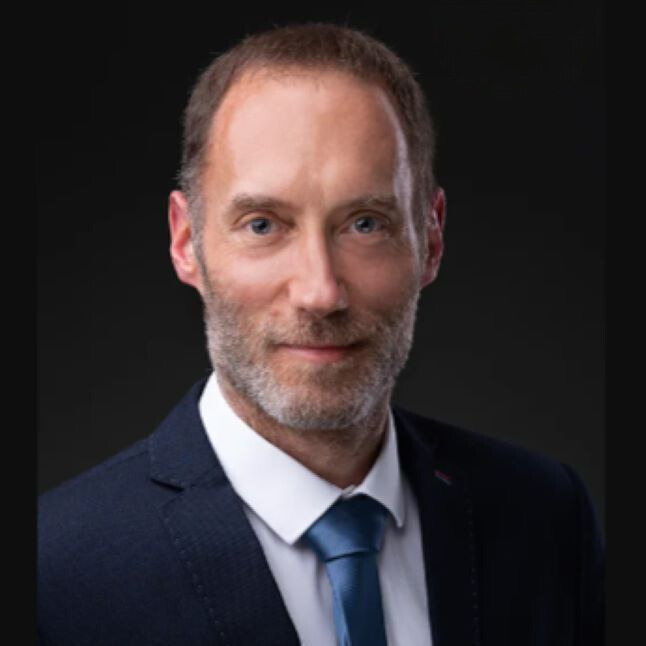
Dr. Bálint Major
He was interested in medicine from the beginning of his high school years. At that time he used to cycle a lot and before every ride he and his friends would dismantle their bikes almost to the ball bearing, grease the parts and rebuild them. By analogy, he thought orthopaedics was a good idea, because parts of the body start to crackle and creak in a similar way, causing complaints that an orthopaedic specialist can put back into working order.
He works full-time at the Irgalmasrendi Hospital in Buda, but also sees patients twice a week at the Csepel Specialist Clinic and on Saturdays at the Budapest Private Orthopaedic Clinic. The rest of his time he spends with his family. He is the happy father of two girls and a boy.
MASTER AND DISCIPLE
"I graduated from Semmelweis University in 2000, but as a student I was already assisting at my first and still existing workplace, the Irgalmasrendi Hospital in Buda. I was impressed by the surgeries, which confirmed my belief in the profession that they make patients with musculoskeletal complaints as mobile as our bicycles make them hikers. My direct supervisor was Miklós Schäfer, and I became a shoulder surgeon under him. After he left to work abroad, I became the only doctor in the department specialising in shoulder diseases and shoulder surgery. In 2007, I qualified as an orthopaedic traumatologist."
FROM ROOT CAUSE TO SOLUTION
"Only by working with the patient can I get to the solution of the problem. What kind of shoulder problem it might be, is determined by listening to the patient's complaints in detail. If the subsequent detailed physical examination confirms my hypothesis, the imaging tests that confirm it are determined and organised. The best course of treatment for the patient will be determined by the patient's internal medical condition, in addition to the disease and condition of the shoulder and the patient's age. If surgery is required, the next exciting phase is to plan the operation based on the above (e.g. if a shoulder prosthesis is required, what type of prosthesis would be best for the patient, whether any additional surgery is needed, etc.)."
CONSERVATIVE PROCEDURES VERSUS SURGERY
"What doctors do is influenced by their habitus. I am probably one of the less 'vehement' surgeons, i.e. I prefer to use non-surgical solutions as much as possible. Not only for me, but also for the patient, it is more reassuring to feel that all conservative options have been explored before the idea of surgery is considered. Of course, there are conditions, shoulder conditions, where surgical treatment is primarily recommended, even acutely."
KNOWLEDGE TRANSFER
"We need to have a constant overview of new methods, tools and techniques. In Hungary, the Hungarian Association of Shoulder and Book Surgeons is outstanding, and I always leave its training courses refreshed and with a fresh pool of knowledge. The Kaposvár Shoulder Days, organised for the third time this year by the Kaposvár Mór Kaposi Teaching Hospital, provide a fantastic experience, knowledge and inspiration with a series of lectures, demonstrations, workshops and friendly discussions."
TARGETED INJECTIONS, SATISFIED PATIENTS
"I have been a member of the Budapest Musculoskeletal Private Clinic since its foundation, where I also provide conservative treatment in addition to diagnostic work. The cornerstone of the latter is injection treatment, which is most effective when targeted, i.e. given in the environment of the 'part' identified as the source of the complaint. In my opinion, of all the conservative treatments, injections are the most effective weapon, if the nature of the disease and the patient's condition allow, and their lasting effects can be seen within a week compared to other methods."
